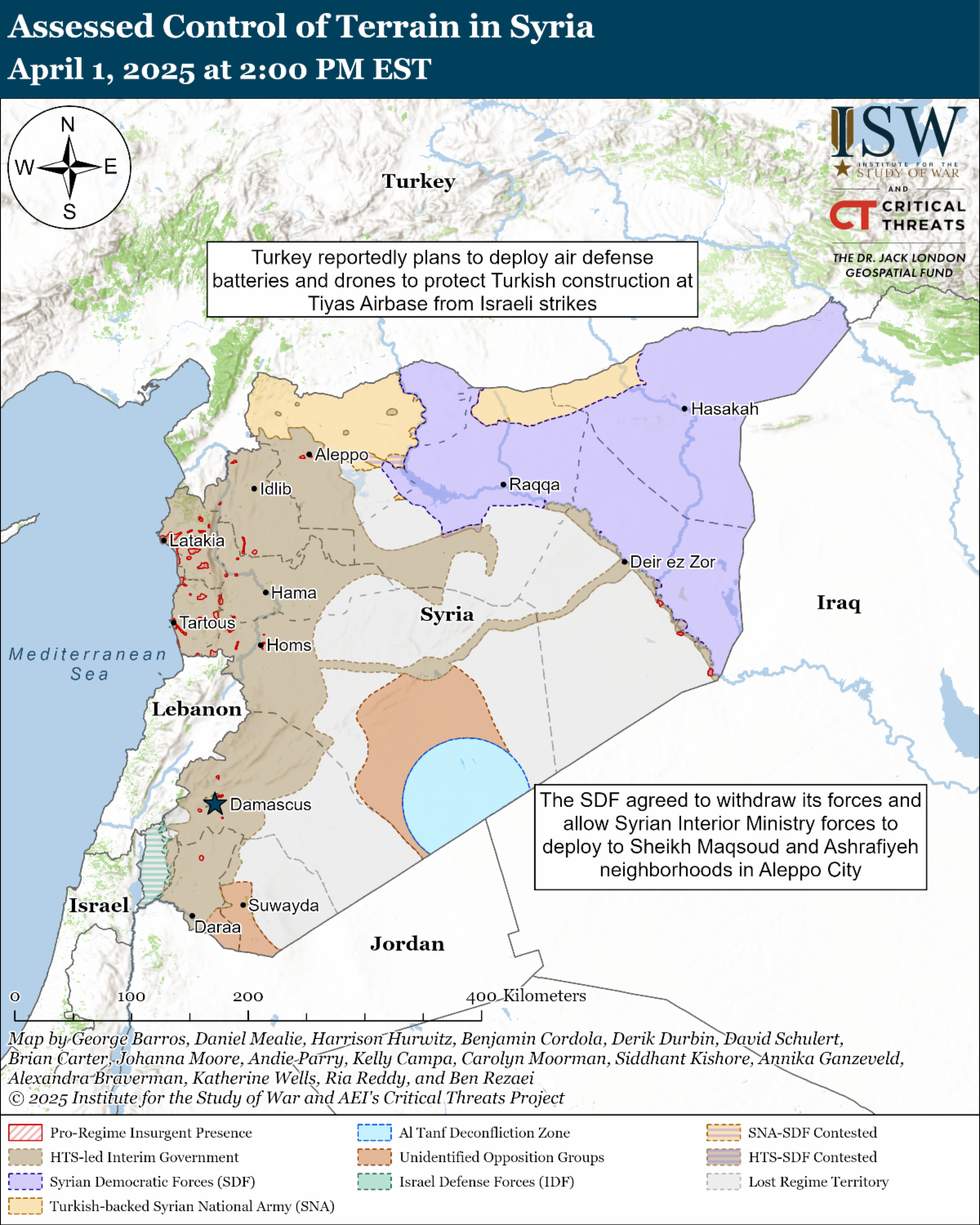The Israel Defense Forces (IDF) thwarted a Hezbollah, Hamas, and Iranian plan on April 1 to conduct a “major” attack targeting Israelis abroad. The IDF killed Hassan Ali Mahmoud Badir, who was a member of Hezbollah Unit 3900 and the Islamic Revolutionary Guards Corps (IRGC) Quds Force, in an airstrike in Beirut on April 1. A Lebanese security source told Reuters that Badir was a mid-ranking commander whose responsibilities included the "Palestinian file." Israeli media reported that Badir, in collaboration with Hamas, had planned an “imminent, large-scale attack abroad” that could have killed “hundreds of Israelis.”
It is not immediately clear what Hezbollah, Hamas, and Iran sought to achieve by conducting such an attack. Hezbollah and Iran may have planned the attack to impose a heavy cost on Israel to try to increase pressure on the IDF to withdraw from the five remaining IDF positions in southern Lebanon. It is also possible that hardline Hezbollah elements who disagree with Hezbollah Secretary General Naim Qassem’s position of inaction vis-a-vis Israel independently planned this attack. Qassem has repeatedly stated that the Lebanese state, rather than Hezbollah, is responsible for responding to Israeli operations in Lebanon. It is unclear if Hezbollah's central leadership approved the attack plan. It is further possible that Hezbollah and Iran calculated, after suffering significant losses throughout the past year, that they must change their strategy and conduct external terror attacks. The Israeli National Security Council warned on April 1, ahead of the Jewish Passover holiday, that Iran, either directly or through its proxies, may try to attack Israeli and Jewish targets abroad against the backdrop of renewed fighting in the Gaza Strip.
Turkey reportedly plans to deploy air defense batteries and drones to protect Turkish construction at Tiyas Airbase in central Syria from Israeli airstrikes. Two unspecified sources told the Middle East Eye on April 1 that Turkey has “begun efforts to take control” of Tiyas Airbase in Homs Province and has developed construction plans for the site. This report follows rumors that Turkey seeks to establish airbases at Tiyas Airbase and Palmyra Military Airport as part of a potential defense pact with the Syrian interim government. Middle East Eye reported that negotiations for the defense pact have "quietly” continued since December 2024. One of the sources said that Turkey plans to deploy Hisar air defense systems and surveillance and attack drones to provide air cover for the base while construction is underway. The Hisar-A and Hisar-O systems are Turkish short- and medium-range surface-to-air missile systems, respectively. A second unspecified source claimed that the presence of Turkish drones and air defense systems at the base would “likely deter Israel” from conducting strikes in the area. The IDF recently struck “strategic military infrastructure” at Tiyas Airbase on March 21 and 25. The strikes destroyed at least one Su-24 fighter jet and rendered the airstrip unusable. An unspecified Israeli defense official told Israeli media that the IDF conducted these strikes to send a message to Syrian Interim President Ahmed al Shara that Israel will not tolerate any reduction of its “freedom of action” in Syrian airspace. An unspecified Israeli security official stated on March 31 that a Turkish airbase in Syria would undermine Israel’s freedom to operate in Syria and that Israel would view such a base as a “potential threat.” The location of Tiyas Airbase in the central Syrian desert would allow Turkey to establish “aerial control” over the area and support Turkish counter-ISIS efforts, according to one of the sources speaking to Middle East Eye.
Turkey and the Syrian interim government have begun construction efforts at the Menagh Airbase, near the Syria-Turkey border in Aleppo Province, in recent weeks. Turkey may deploy air defense systems and fighter jets to the Menagh Airbase once renovations are complete, according to Syrian media.
Key Takeaways:
- Thwarted Hezbollah, Hamas, and Iranian Attack: The Israel Defense Forces (IDF) thwarted a Hezbollah, Hamas, and Iranian plan on April 1 to conduct a “major” attack targeting Israelis abroad. The IDF killed Hassan Ali Mahmoud Badir, who was a member of Hezbollah Unit 3900 and the Islamic Revolutionary Guards Corps (IRGC) Quds Force, in an airstrike in Beirut on April 1. Israeli media reported that Badir, in collaboration with Hamas, had planned an “imminent, large-scale attack abroad” that could have killed “hundreds of Israelis.” It is not immediately clear what Hezbollah, Hamas, and Iran sought to achieve by conducting such an attack.
- Iranian Weaponization Threats: Senior Iranian officials are continuing to threaten nuclear weaponization, likely to try to deter a potential US or Israeli strike on Iranian nuclear facilities amid new US threats to strike these facilities. Senior Supreme Leader Adviser Ali Larijani stated on March 31 that a US or Israeli strike on Iran would "force" Iran to develop a nuclear weapon to "defend its security." Western media reported in January 2025 that Larijani had made secret trips to Russia to gain Russian assistance on Iran’s nuclear program.
- Turkish Military Bases in Syria: Turkey reportedly plans to deploy air defense batteries and drones to protect Turkish construction at Tiyas Airbase in central Syria from Israeli airstrikes. Two unspecified sources told the Middle East Eye on April 1 that Turkey has “begun efforts to take control” of Tiyas Airbase in Homs Province and has developed construction plans for the site. This report follows rumors that Turkey seeks to establish airbases at Tiyas Airbase and Palmyra Military Airport as part of a potential defense pact with the Syrian interim government.
| 




 [ISW] 이란 업데이트, 2025년 4월 3일
[ISW] 이란 업데이트, 2025년 4월 3일
 [ISW] 이란 업데이트, 2025년 3월 19일
[ISW] 이란 업데이트, 2025년 3월 19일